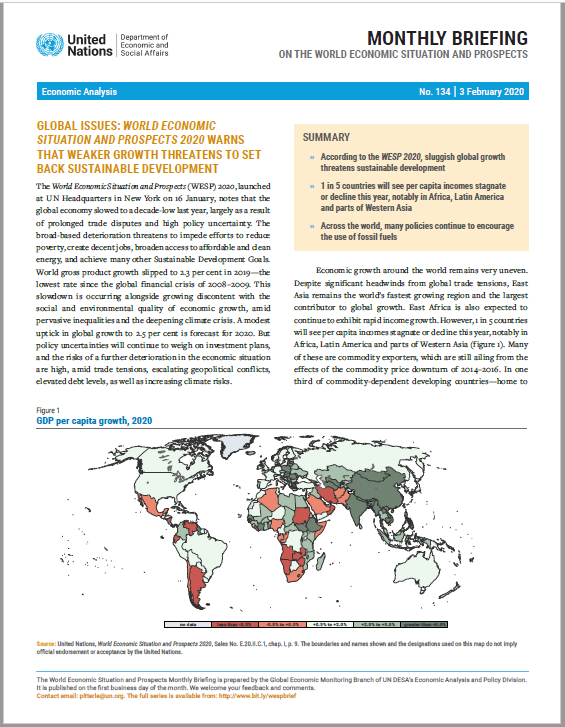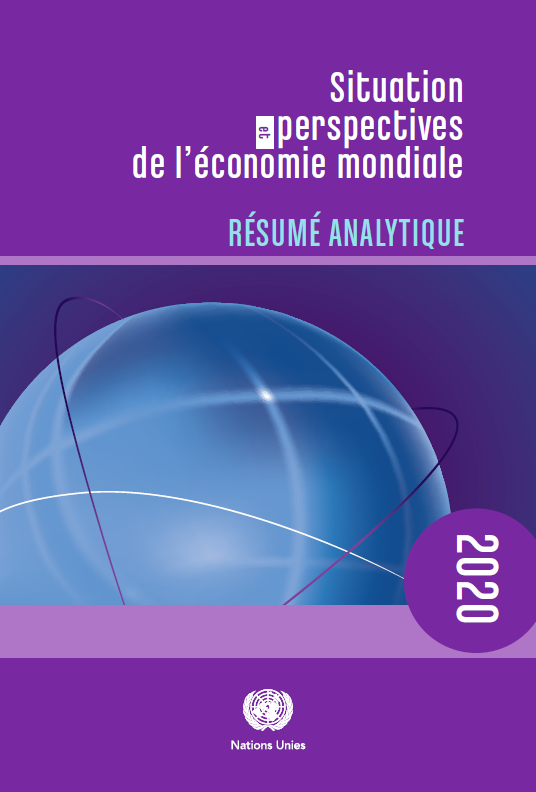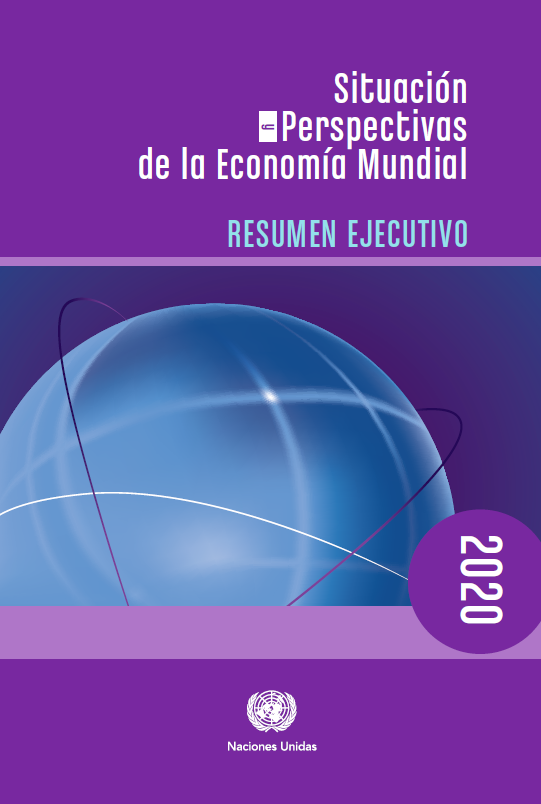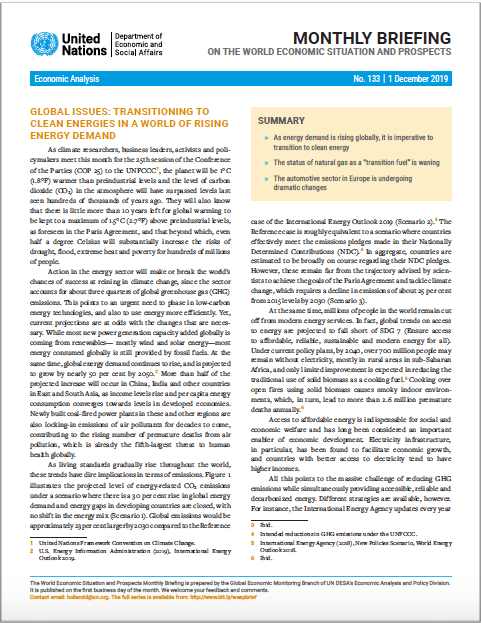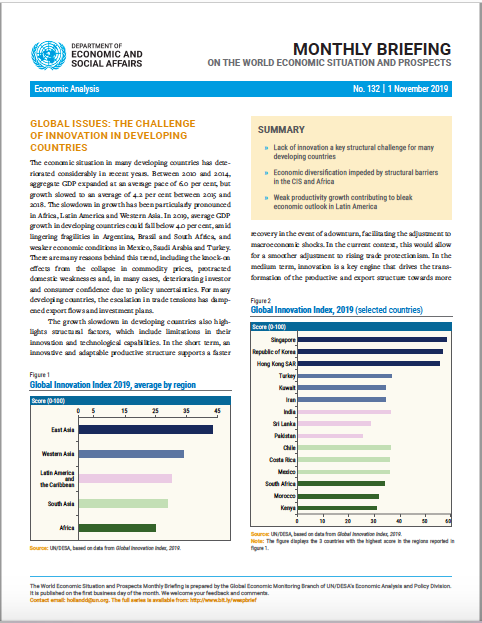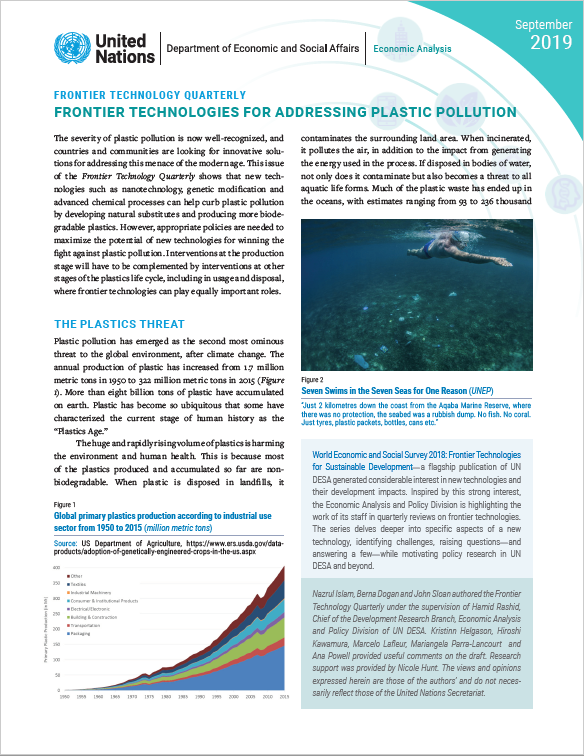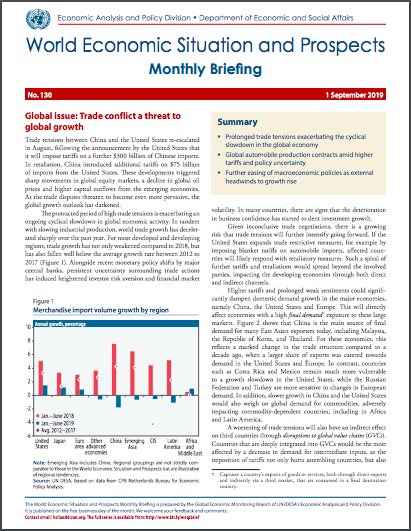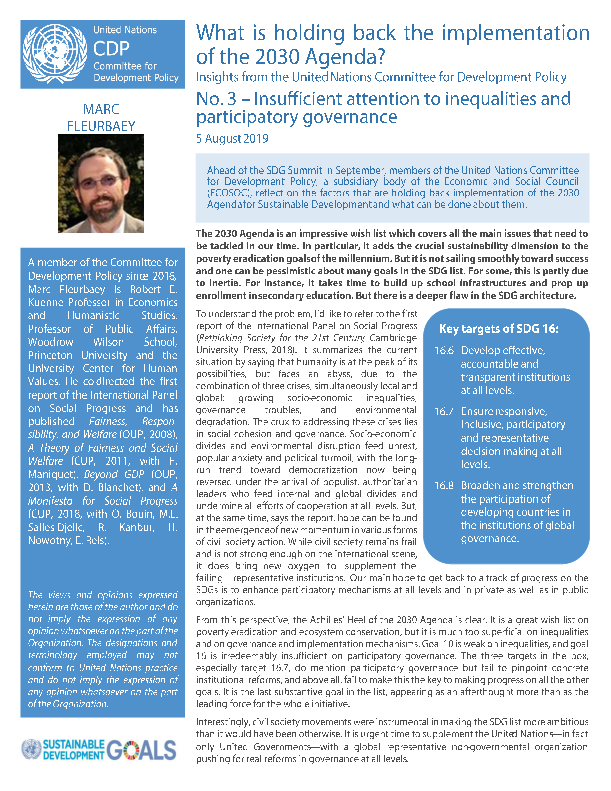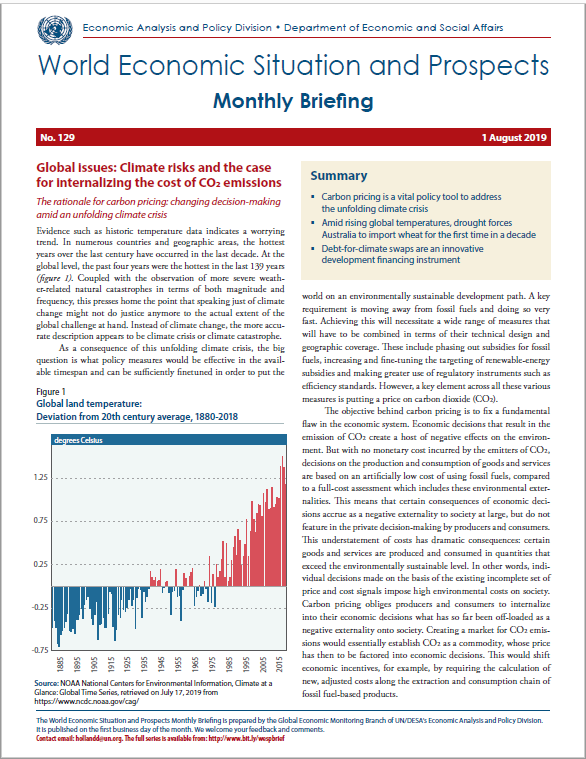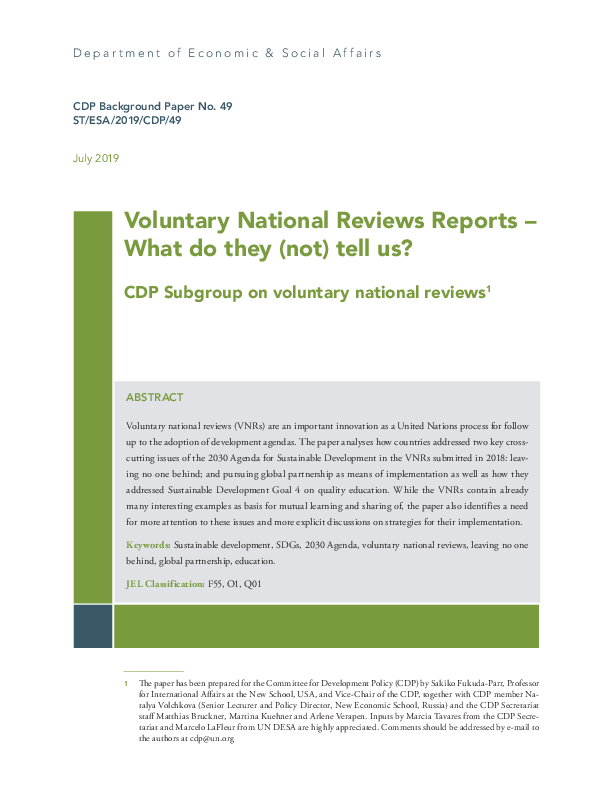Publications
Displaying 11 - 20 of 43
عربي, 中文, English, Français, Русский, Español Development cooperation with middle-income countries (A/74/269)
عربي, 中文, English, Français, Русский, Español
by Kori Udovicki One factor holding back the implementation of the SDGs is the absence of better mechanisms to help channel globally available capital and know-how to support the development of small and medium enterprises (SMEs). It is well-known that SMEs are an important generator of employment and innovation, and significant efforts are invested in helping them overcome their limitations. However, as historically development has come through the conquest of technologies with ever-larger increasing returns to scale, SMEs have generally been only able to complement, rather than independently contribute… No. 4: The inadequacy of mechanisms to help channel capital and know-how to SMEs
[accordion-item title="Day 1" state=open] World Economic Prospects: Risks and Development Challenges World Economic Outlook: Growth Slowdown, Precarious Recovery World Economic Prospects: Heightened Tensions, Subdued Investment World Economic Prospects: Capital Economics The 2018-2019 World Economic Slowdown Accelerating Africa's Transformation to Unlock Africa's Potential Accelerating Africa's Transformation to Unlock Africa's Potential Part 2 Overcoming Development…
by Marc Fleurbaey The 2030 Agenda is an impressive wish list which covers all the main issues that need to be tackled in our time. In particular, it adds the crucial sustainability dimension to the poverty eradication goals of the millennium. But it is not sailing smoothly toward success and one can be pessimistic about many goals in the SDG list. For some, this is partly due to inertia. For instance, it takes time to build up school infrastructures and prop up enrollment in secondary education. But there is a deeper flaw in the SDG architecture. To understand the problem, I?d like to refer to the first… No. 3: Insufficient attention to inequalities and participatory governance
 Welcome to the United Nations
Welcome to the United Nations
